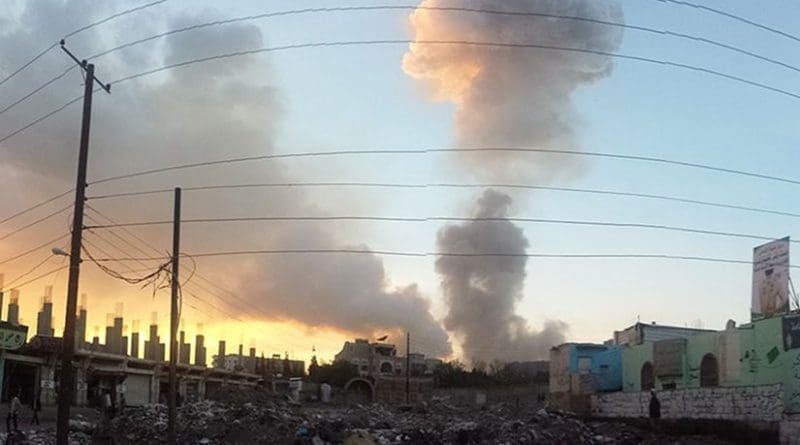Yemen: US-Made Bombs Used In Unlawful Airstrikes, Says HRW
The Saudi Arabia-led coalition killed several dozen civilians in three apparently unlawful airstrikes in September and October 2016, Human Rights Watch said today. The coalition’s use of United States-supplied weapons in two of the strikes, including a bomb delivered to Saudi Arabia well into the conflict, puts the US at risk of complicity in unlawful attacks.
The attacks underscore the urgent need for foreign governments to suspend all arms sales to Saudi Arabia and for the United Nations human rights office to send additional investigators to Yemen to carry out credible investigations of alleged abuses by the coalition, the Houthis and their allies, and all other parties to the conflict, Human Rights Watch said.
“Saudi-led forces are bombing civilians in Yemen with newly supplied US weapons,” said Priyanka Motaparthy, senior emergencies researcher at Human Rights Watch. “The Obama administration is running out of time to completely suspend US arms sales to Saudi Arabia or be forever linked to Yemen wartime atrocities.”
Since the beginning of the Saudi-led campaign in March 2015, Human Rights Watch has found remnants of US-supplied weapons at the site of 23 apparently unlawful coalition airstrikes, including more than a dozen attacks involving US-made cluster munitions. Researchers did not find identifiable remnants in every attack documented. The US approved more than US$20 billion in military sales to Saudi Arabia in 2015 alone. Three US arms sales in 2015 and 2016, worth nearly US$3 billion, involved replenishing Saudi weaponry used in Yemen.
Human Rights Watch located remnants of US-made weapons at the site of coalition airstrikes in Arhab in Sanaa governorate and in the Hodeida governorate. A September 10 attack on a drilling site for water in Arhab killed at least 31 civilians, including three children.
According to the Human Rights Watch researchers found remnants of two US-made GBU-12 Paveway II laser guided 500-pound bombs. One Paveway II laser guidance system had markings indicating it was manufactured by Raytheon, Inc., a US arms manufacturer, dated October 2015 – seven months after the start of the war. The other weapon was manufactured at an undetermined date in 2015. By October 2015, the UN as well as Human Rights Watch and others had already reported numerous unlawful attacks by coalition forces.
A coalition airstrike on October 29 struck the al-Zaydiya security administration building north of the city of Hodeida. Many of the about 100 people who were being detained in the facility died in the bombing. The Houthis and allied forces stationed military personnel and trucks mounted with machine guns at the site.

